‘1000 pages’: Aussie dad’s ‘cruel’ three-year wait for vaccine injury compensation
Chris Nemeth made the same decision as nearly every Aussie, and his old life was “taken away”. But what came after was simply “cruel”.
Health
Don't miss out on the headlines from Health. Followed categories will be added to My News.
EXCLUSIVE
A Melbourne dad who had to “learn to walk again” after a life-changing reaction to AstraZeneca has warned there “will be suicides” if the government does not urgently rethink its support for those suffering Covid vaccine injuries.
The federal government’s Covid-19 Vaccine Claims Scheme, launched in 2021, is set to end on September 30 despite approving fewer than one in 10 claims and being widely criticised as inadequate.
“It’s almost like they were waiting for you to go away or pass away,” said Chris Nemeth, describing his years-long battle for compensation through the complex, narrowly targeted scheme as “unnecessarily cruel”.
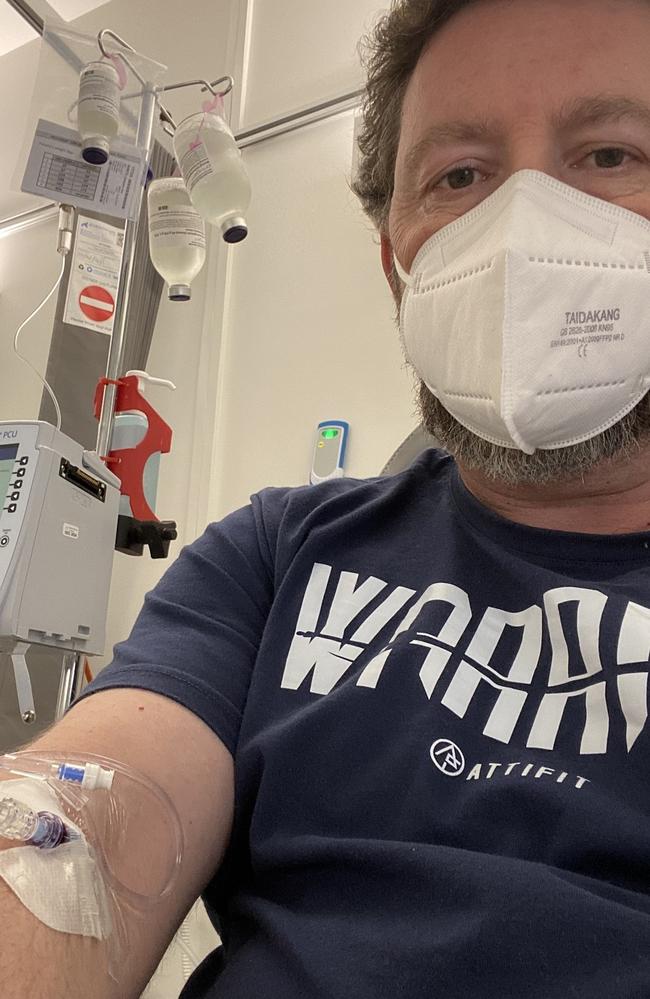
The government is now facing calls to extend and overhaul the claims scheme, as a new academic paper from UNSW suggests the program was intentionally designed to allow authorities to shirk political and financial accountability.
“[Human Services] Minister Bill Shorten has used the low number of approved compensation applications precisely in this way to argue for vaccine safety,” the study’s authors write.
Mr Nemeth, 51, was left permanently disabled with chronic inflammatory demyelinating polyneuropathy (CIPD) after taking his first dose of the AstraZeneca vaccine in July 2021.
CIPD is the chronic version of Guillain-Barré syndrome (GBS), a rare auto-immune condition affecting the nerves which causes numbness and pain in the hands and feet and can lead to paralysis.
The father-of-two, who was hospitalised three times between July and November 2021, was forced to abandon his 30-year career in freight logistics and may never return to work.
“I had to learn to walk again,” he said.
“I still have constant neuropathy in both hands and feet — tingling, burning, pins and needles — I have fatigue, my brain doesn’t work the way it once did and I have challenges with balance. From what I’ve been told by the neurologist, where I’m at now is as well as I’m likely to get.”

Mr Nemeth said the injury had “changed my life”.
He takes daily medication for the pain and goes to hospital every three weeks for IV immunoglobulin infusion to keep the symptoms at bay.
“It’s taken away a lot of what I was before I got sick,” he said.
“I was fit and healthy, active, I had my dream job. That’s all been taken away. My wife and I had plans for the future. That’s all gone. It’s taken away my opportunities to be that person I thought I was going to be.”
This month, three years since his injury and nearly 18 months after his submission to the Covid-19 Vaccine Claims Scheme, Mr Nemeth was offered a settlement.
“It’s not everything I’d asked for but it’s enough that it provides for a period of financial stability,” he said, without disclosing the figure.
But he said he was “one of the lucky ones”.
Mr Nemeth, with the help of a lawyer, spent nearly 12 months gathering the supporting documentation for his 1000-page submission.
He first realised the process would be difficult when he logged onto the website and found the policy document outlining the claim requirements ran to more than 60 pages.
“I’m not stupid, but I knew pretty quickly I wasn’t going to be able to navigate the legalese on my own,” he said.
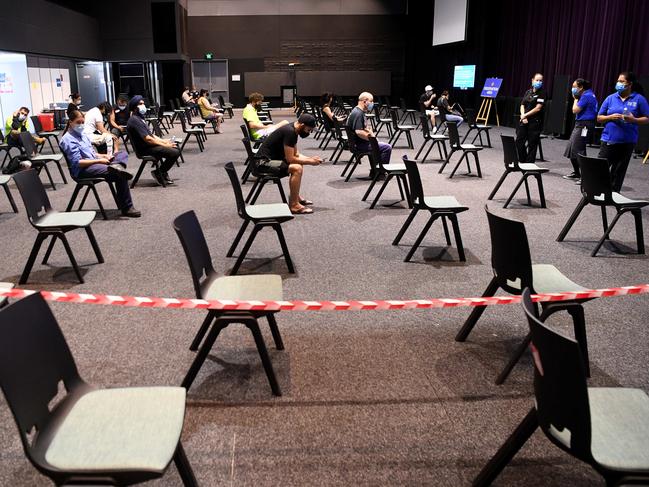
But he was surprised to find that some of the country’s largest personal injury law firms, which tout their “no win, no fee” services, would not help.
“They were saying they were not helping people [make claims],” he said. “In their words, professional legal support was not necessary.”
Mr Nemeth was helped in his claim by Tanya Neilson from Guardian Injury Law.
Even though he was “very fortunate” to have a lawyer to assist him and a supportive GP and neurologist willing to attribute his injury to the vaccine, Mr Nemeth says the process was “extremely difficult”.
Services Australia, which administers the scheme on behalf of the Health Department, made multiple requests for additional information or clarification, each time requiring a months-long back-and-forth.
“In my experience it was information that was already covered,” he said.
“Sometimes it was a language game. My doctors had mentioned in their reports ‘permanent issues’, but in the eyes of Services Australia ‘permanent’ didn’t designate a time-frame. So we had to specify the ‘remainder of [my] life’.”
Mr Nemeth said his “feeling throughout was it was designed to see you frustrated”.
While his claim has now been resolved, Mr Nemeth said he felt he had to “speak out for other vaccine-injured people” who haven’t been compensated, as he fears there is a “likelihood there will be suicides”.
“All we did was take a vaccine the government told us was going to be safe and effective, and that if in the rare situation you were injured there was a safety net for you,” he said.
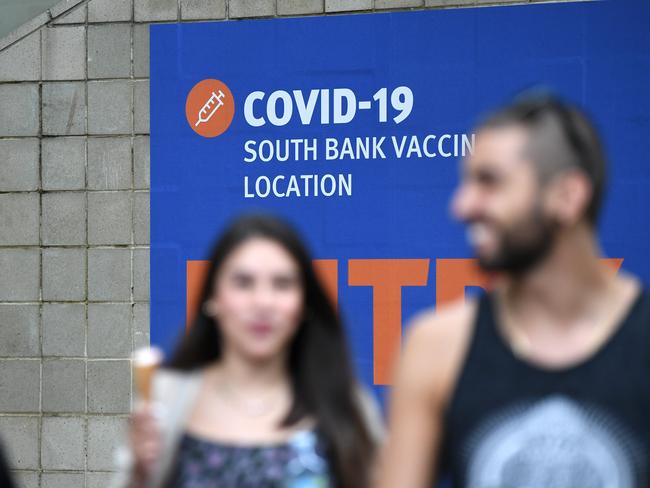
“All we did was what we were asked with the understanding we would be taken care of if something went wrong, then we’re left to fight this cruel scheme.”
As of August 21, the scheme has received 4426 claims and paid out 378 to the value of around $29.8 million, with another 663 still active, according to Services Australia.
“We’ll continue to assess all claims received before the scheme ends on September 30,” a spokeswoman said.
In a study this month, researchers from UNSW argued the Covid-19 Vaccine Claims Scheme was intentionally designed to be “exclusionary”.
The paper, currently in preprint, found a “gross misalignment” between the range of adverse events identified in peer-reviewed literature and the small number accepted under the Australian scheme.
Analysing 771 international papers detailing case studies of serious adverse reactions to Covid vaccines, the researchers “found a much greater array of reactions in the literature than approved for compensation”.
“Also, a higher proportion of adverse events were found for some reactions not listed on the compensation scheme (e.g. kidney and eye disease) than the conditions which are listed,” they write.
“The adverse events for kidney and eye disease were particularly severe, with case studies of vision loss and kidney failure/damage. The wide range of inflammatory disorders across all three vaccines is also worth noting.”
The study was authored by Professor Gemma Carey and Dr Nicholas Bromfield from the UNSW Centre for Social Impact, Rachael O’Reily from vaccine injury charity Coverse and Professor Dilan Thampapillai from the University of Wollongong Faculty of Law.
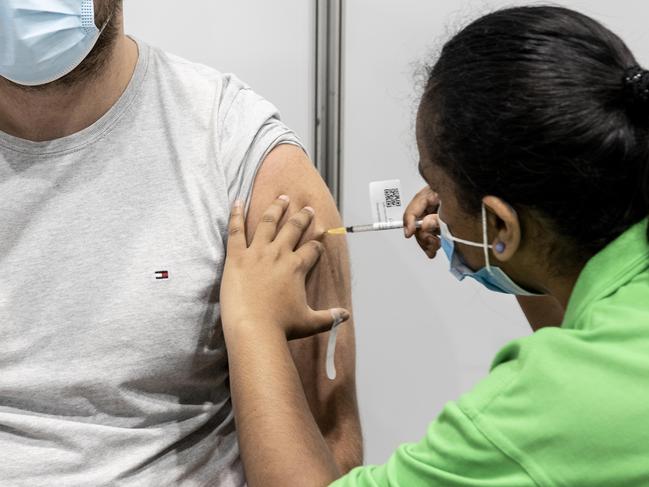
They argue that the claims scheme represents a case of “administrative burden and exclusion”, being “constructed so tightly as [to] prohibit meaningful access by citizens”.
“The restriction of the scheme through its tight construction and heavy burdens could be viewed as [an] inherently political means to quieten counter-narratives that might disrupt government rhetoric regarding the safety of the vaccines,” they write.
In order to ensure the “timely supply” of Covid vaccines during the pandemic, the federal government indemnified drugmakers while recognising some injuries would be inevitable given the scale of the rollout.
To date, 72 million doses of Covid vaccines have been given in Australia and more than 139,000 adverse reactions have been reported to the Therapeutic Goods Administration (TGA) — a rate of less than 0.2 per cent.
“On the surface, the Vaccine Claims Scheme represents a sound policy response to the risk and reality of vaccine-injury,” the authors write.
“Yet, the existence of administrative burden represents a significant risk-transfer from the Commonwealth government onto those who have been injured by the vaccine. The result is that neither the manufacturer nor the procuring government actually bear the risk burden associated with the rapid development and rollout of Covid vaccines.”
Teal MP Dr Monique Ryan said the study highlighted the “slow and inadequate response” of the scheme, which she added should be “revised and refunded” rather than closed down.
“The vast majority of Australians experienced vaccination against Covid without significant ill-effects, and their lives were improved by that process,” Dr Ryan wrote in the foreword to a report by Coverse.
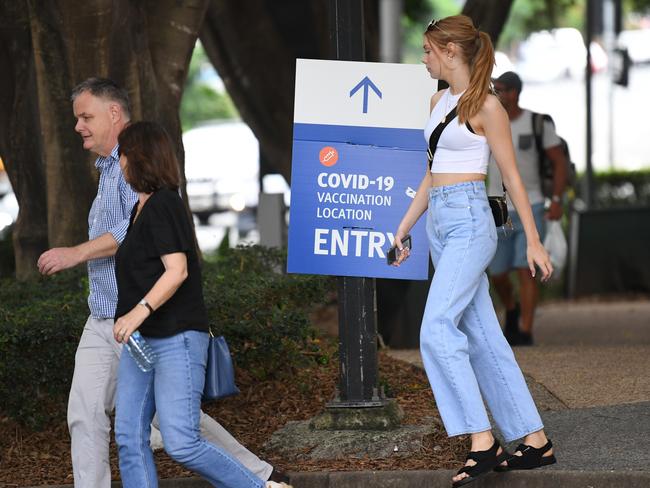
“Our government owes a debt to those few who suffered injury from those medications. Surveillance and compensation schemes are important for ensuring trust in the system and accountability of institutions.”
Dr Ryan previously signed a letter to Prime Minister Anthony Albanese, Health Minister Mark Butler and Social Services Minister Bill Shorten calling for an “urgent review and extension” of the scheme.
“The very system designed to support the vaccine-injured is creating insurmountable barriers which are near impossible to overcome — further exacerbating their suffering and distress,” crossbench MP Russell Broadbent wrote in the July 29 letter.
“This is unconscionable, unjust and un-Australian. The maltreatment of the vaccine-injured, along with the government’s lack of compassion and stubborn refusal to address the scheme’s anomalies is cruel and inhumane.”
The letter added, “While the Australian government indemnifies vaccine manufacturers and continues to promote the uptake of boosters, it makes no sense for the ‘safety net’ of the scheme to be removed.”
According to Mr Nemeth, any revised scheme firstly should offer interim support for claimants.
“I was left without any financial support for two-and-a-half years,” he said.
More importantly, he said the criteria should be vastly simplified.
“If you’ve got a GP and a specialist willing to say it’s linked to your Covid vaccine, that should be enough,” he said.
“You shouldn’t have such narrow criteria and hoops to jump through.”
Health Minister Mark Butler declined to comment.
A Health Department spokeswoman said in a statement that the “no-fault, time-limited claims scheme” was created under the former government to respond to the “unprecedented circumstances” of the pandemic, and noted it had been extended from April until September by Labor.
“The scheme enables eligible claimants who have received a TGA-approved Covid-19 vaccine to obtain compensation for a moderate to significant injury or death caused by the vaccine or its administration,” she said.
The statement did not address any of the specific criticisms of the scheme.
Originally published as ‘1000 pages’: Aussie dad’s ‘cruel’ three-year wait for vaccine injury compensation





